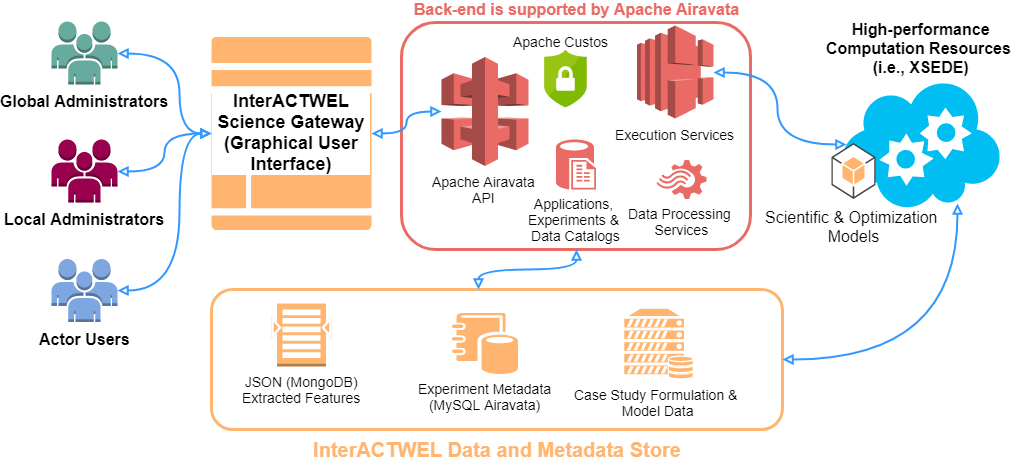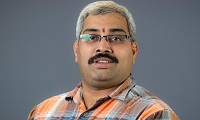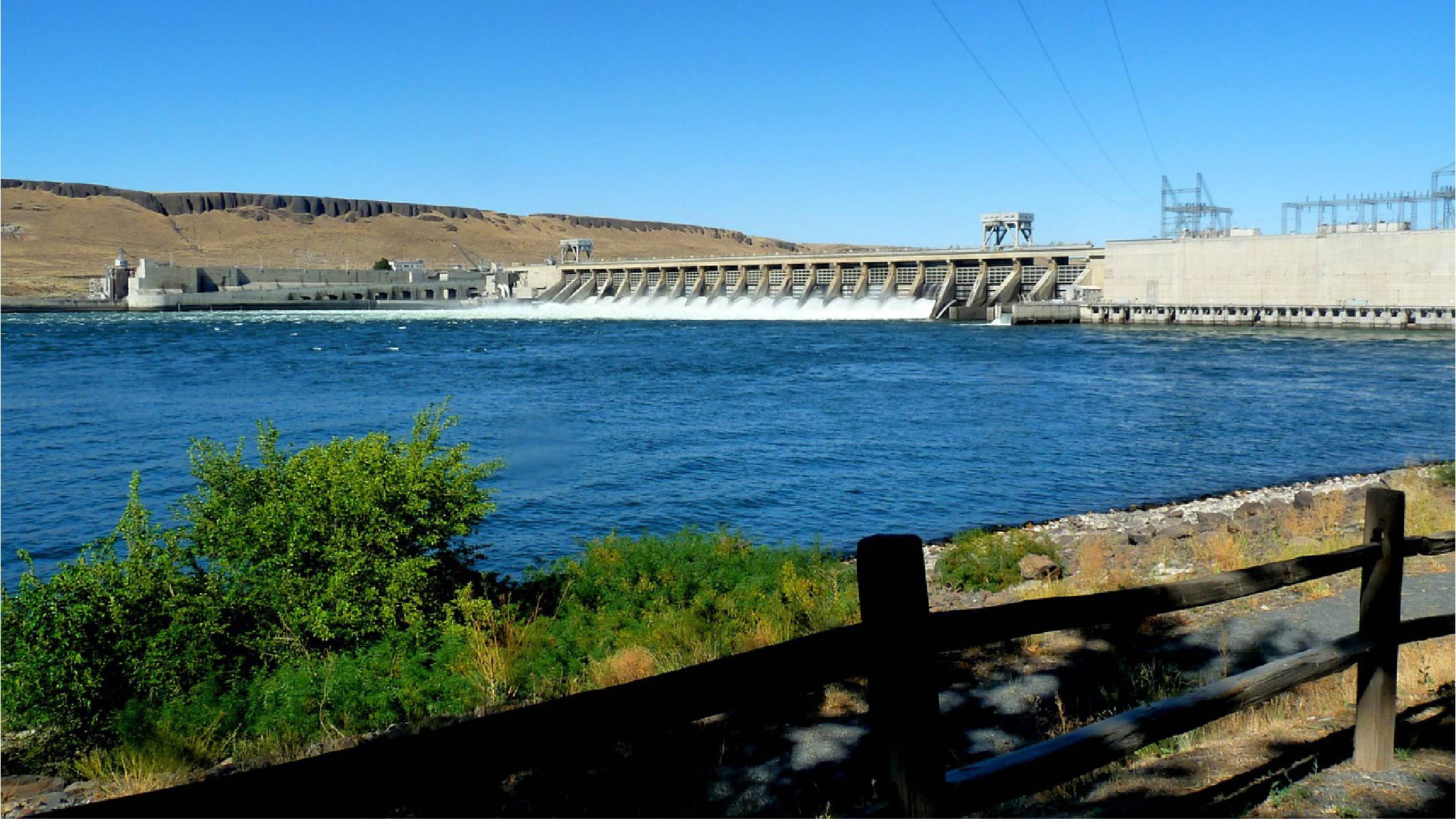Adapting for Resiliency
Change is inevitable. Communities, to be resilient, need to be able to respond to change as it unfolds. Responses may include long term adaptation to change, those that requires food, energy, and water sectors to modify how they use and manage their resources, operations, and assets in the future.
InterACTWEL (Interactive Adaptation and Collaboration Tool for managing Water, Energy and Land) is a secure and intelligent computer-aided decision support tool that aims to empower food, energy, and water sectors in local watershed communities to collaborate and coordinate their planning efforts in the face of an uncertain future. By using advanced scientific models and interactive interfaces it can assist decision makers and policy makers to (a) develop potential community-wide adaptation actions in response to specific disturbances, (b) visualize costs, benefits, and impacts of their actions, and (c) communicate suggestions for and feasibility of potential actions to partners.


InterACTWEL as an intelligent and secure Decision Support Tool

Learn
Learn about how adaptation can help FEW sectors in watershed communities be resilient

Prepare
Create portfolios of community-wide adaptation strategies using advanced scientific models and machine learning

Act
Visualize, evaluate, recommend, identify and adopt community-preferred adaptation plans
InterACTWEL’s Cyberinfrastructure

Contact Us

Dr. Meghna Babbar-Sebens
Associate Professor of Water Resources Engineering
School of Civil and Construction Engineering
Oregon State University

Dr. Snehasis Mukhopadhyay
Professor of Machine Learning
Department of Computer and Information Science
Indiana University Purdue University-Indianapolis

Dr. Ganti Murthy
Professor of Agriculture Engineering
Professor of Department of Biological and Ecological Engineering
Oregon State University

Dr. Jeff Reimer
Professor of Agriculture Economics
Applied Economics
Oregon State University

Dr. Arjan Durresi
Professor of Trustworthy AI and Cybersecurity
Computer and Information Science
Indiana University Purdue University Indianapolis

Dr. Jenna H. Tilt
Assistant Professor of Geography
Environmental Sciences, and Marine Resource
Department of Geography
Oregon State University

Dr. Samuel J. Rivera
Post-doc Research Associate
School of Civil and Construction Engineering
Oregon State University

Suresh Marru
Deputy Director & Chief Architect, Cyberinfrastructure Integration Research Center
Indiana University Bloomington



